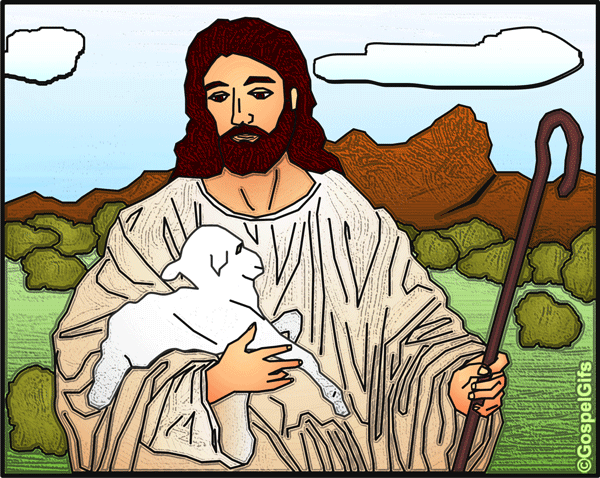Anyone who is nominally familiar with the Christian faith has most likely heard Christ referred to as a shepherd tending to His flock. For example, funeral services – even ones that may be more secular in nature – often incorporate Psalm 23: “The Lord is my shepherd, I shall not want…”
As a sort of funny side bar about the word “shepherd”, this word is deeply embedded in my memory – not only because of my first iteration as a cradle Catholic and often seeing depictions of Jesus carrying a lamb or working as shepherd, but true story: When I was in the 4th grade, I won the school spelling bee –and guess from which word…Yes, shepherd!
My remaining opponent, who was a bit full of herself (which, I admit, made the victory that much sweeter), had the first crack, except she spelled it as “sheppard”. That’s when the celebration of victory –imaginary confetti and everything! — broke out inside my head, as I knew this one was mine for the taking. However, when my opponent then broke out in tears after I had boisterously claimed the win and shamelessly rubbed her nose in it, I felt a bit bad for gloating about my victory. And considering I was well familiar with the word shepherd because of my Catholic upbringing, my parents put me back in check afterward about playing nice with others. (But, hey, it sure was great to win the spelling bee!)
Now, back to the reflection: At first, Jesus referring to Himself as shepherd can seem a little mind bending at first, as He is also referred to as the “Lamb of God”. That said, is He the shepherd, or the sheep, or both?
This can be likened to God as the Trinity: God, Christ, and the Holy Spirit are all *God*, yet are distinct in how They work through us — yet They also work together to guide our faith and spiritual relationship. That is, Christ is the Shepherd who leads his flock to salvation through Him – while He shows that He willingly gave up His earthly life for His flock.
Further, we can relate this to the story of Abraham and Isaac: Isaac, who represents humanity and typologically points to Christ’s sacrifice for us, is spared his life, and a ram is sacrificed in his place. Therefore, through God’s will, humanity is spared the price of eternal sin, should we choose to accept Christ as our Lord and Savior.
We can also relate this to parenthood: Most parents make such a deep commitment to their children’s wellbeing and sanctity, that they will lay down their lives in a second if it means their children will be saved from any pernicious darkness surrounding them.
God, our Holy Father, has also made a deep commitment – a Covenant – with us. His Son, our eternal Shepherd, gave us the most precious gift of salvation so that we too may be freed from darkness.
I pray this week for all who struggle to follow God’s lead. We have scores of rogue “sheep” so heavily influenced by naysayers, skeptics, and people posing as truth shepherds or trying to reinvent the Gospel to fit modern society, that it can feel despairing and that we are going off the rails.
But then I remember that if all of this is truly in God’s hands, that Christ is truly our Shepherd, then we can trust that He is going to pull us out of this socially deceptive funk in which we all currently live. Yet that does not mean we do not remain steadfast in our faith. We are here to help lead our fellow flock to God’s glory and gift of salvation.
I will continue to reflect on this and keep my own journey in check as well – just as my parents kept me in check about my victory about the word “shepherd” – and that our relationship with Christ, our supreme Shepherd, is what counts the most.
